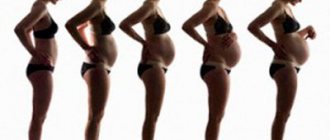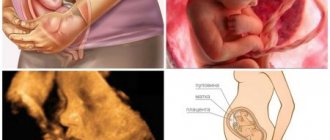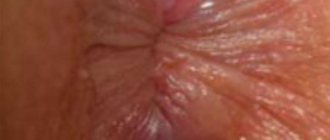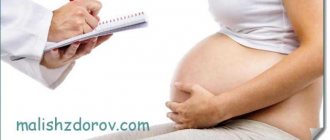With the onset of pregnancy, changes inevitably occur in a woman's body. The mammary glands are especially sensitive to them. Many expectant mothers, especially those who find themselves pregnant for the first time, are interested in when breast pain begins to hurt during pregnancy, and is it possible to mitigate the discomfort?
Changes that affect hormonal levels affect all organs and systems. Chest pain is a sign of successful conception and pregnancy development. It may appear within a few days after fertilization and remain present throughout pregnancy.
When does your chest start to hurt?
Determining pregnancy before a missed period is quite difficult. The test is still silent, the belly is not growing, the only sign of possible conception is pain and tension in the mammary glands. Not all women take this symptom seriously, as many begin to experience chest discomfort shortly before their period, and only if they do not come on time does it become obvious that they may be pregnant.
So, at what week or what month does your breasts begin to hurt during pregnancy - when does this happen? An increase in the sensitivity of the mammary glands will begin to manifest itself within a few days after conception. Since everything is individual, feelings and timing may vary. Pain most often appears at the beginning of pregnancy and goes away by the end of the first trimester, only to return and remind itself shortly before the birth of the child.
Sometimes women complain that their breasts continue to hurt throughout the entire period, but the sensations will still be less pronounced than they were before 12 weeks. With repeated pregnancies, the mammary glands begin to worry earlier than when conceiving the first child. The severity of pain and the period at which breast pain begins to hurt depend on the characteristics of the female body.
Chest pain as a sign of pregnancy
At the beginning of pregnancy, a number of changes begin to occur in a woman's body. The subjective sensations that you observe during this period themselves indicate an interesting situation. Women's breasts react especially sensitively to hormonal changes in the body.
The first signs of pregnancy:
- nausea. If you experience nausea at the beginning of pregnancy, read the current article Nausea during pregnancy >>>;
- fatigue;
- irritability;
- pain in the mammary glands;
- an increase or, conversely, a decrease in appetite (the book Secrets of Proper Nutrition for an Expectant Mother >>> will tell you how to eat properly during this important period for any woman);
- nagging pain below.
Important!
Swelling, heaviness, tingling and other types of pain can be present in both one and two mammary glands.
But the opposite situation can also happen. The fact that you are pregnant will be indicated by the absence of the usual pain before the start of the menstrual cycle.
Nature of pain
Regardless of when breast pain begins during pregnancy and how long it lasts, the nature of the pain is determined by the individual characteristics of the woman.
If pregnancy is confirmed, pain in the mammary glands is already present in many women. At the same time, some expectant mothers only note tingling in their nipples, while others simply cannot touch their breasts - the pain is so intense.
At the same time, the mammary glands noticeably increase in volume, their density increases, and therefore a “web” of veins forms under the skin, since the tissues need additional blood circulation. At the same time, colostrum may appear from the nipples; this symptom is especially noticeable in multiparous women.
Some expectant mothers begin to worry about the situation when the breasts do not hurt at all and do not cause discomfort during pregnancy. This usually occurs after the first trimester, but sometimes breast tenderness is absent even earlier.
This may also be a variant of the norm, due to the reduced sensitivity of breast receptors to hormonal changes. In this case, pain and the expected growth of the mammary glands may appear a little later - in the second half of pregnancy. To dispel worries, you need to consult a gynecologist.
Sudden cessation of pain - is there any cause for concern?
Many expectant mothers mistakenly believe that the intensity and duration of breast pain depends on how far along they are; according to their logic, the longer the period, the greater the pain. Therefore, when the chest begins to hurt less, or the pain stops altogether, they may panic.
But the cessation of pain is not always a harbinger of a terrible event. It should be remembered that pregnancy is different for every woman. The reason that pain in the chest has disappeared may be the body’s adaptation to hormonal changes or the balancing of hormonal balance.
But, in order to exclude pathology, the woman still needs to see a doctor . Moreover, the peace of mind of the expectant mother plays an equally significant role in the successful bearing of the child.
If you have any problems, you should consult a doctor
Carefully! In some cases, especially in the early stages, a sudden cessation of chest pain may indicate a possible spontaneous termination of pregnancy . At the slightest suspicion, you should immediately consult a doctor!
Do breasts always hurt during pregnancy?
Pregnancy cannot be the same even among close relatives. Some expectant mothers complain of increased sensitivity of the breasts, others note increased pigmentation and enlargement of the areolas, and others note slight soreness. But sometimes the mammary glands do not cause any discomfort to a woman at all, but at the same time they still enlarge and become denser, as they should be during pregnancy.
As a rule, chest pain in an expectant mother resembles the same feelings of tension and discomfort that they experience on the eve of their period. But if there is no pain, this should in no case cause panic, since this option is also within the normal range.
Is pain always associated with conception?
Many women feel changes in their breasts even before a delay in menstruation appears and is done. Sometimes this pain is confused with similar sensations of premenstrual syndrome, but ladies who are attentive to their health will note the atypical pulling and bursting nature of the pain, increased sensitivity of the nipples and changes in the density of the mammary gland.
Women with repeated pregnancies already accurately determine the fact of conception by the changes that occur. They are confident in their pregnancy even before it is confirmed with a test.
However, it is important to remember that this sign is very subjective! To confirm pregnancy, it is necessary to conduct a test or.
Moreover, there are cases when women, while expecting pregnancy, felt pain and even noticed breast enlargement - but this turned out to be just a psychosomatic manifestation, there was no real pregnancy. Such phenomena can occur, for example, in women experiencing problems with conception or in young women who have recently gotten married and dream of soon adding to their family.
Thus, chest pain is, but not at all mandatory and does not indicate 100% its occurrence.
How long does this last?
We talked about at what period during pregnancy the breasts begin to hurt, but after how many weeks does the pain go away? Most often, discomfort in the mammary glands disappears by the end of the first trimester or closer to the 12th week. At the same time, the symptoms of early toxicosis soften for many women. In this way, the body tells the expectant mother that adaptation to hormonal changes has been completed.
It can be noted that the peak sensitivity of the mammary glands occurs in the morning; in the late afternoon the discomfort usually subsides. Thanks to increased blood supply, breast tissue begins to increase in size. If a woman follows a daily routine and leads an active lifestyle during the day, then in the evening her mammary glands will be less sensitive.
The first symptoms of pregnancy - how the breasts change
There are many pregnancy symptoms that affect each individual woman individually.
Very often, the breasts are the first to signal the onset of pregnancy . The woman begins to experience new sensations that are not similar to those that appear before menstruation.
Changing breast size by trimester
A woman who is not yet aware of her situation may feel the following changes in her mammary glands:
- significant increase in size;
- darkening of the nipples;
- swelling and soreness;
- the appearance of discharge.
When confirming pregnancy, all these symptoms should not be a reason for panic, because they are a normal physiological process.
The size of a woman's breasts does not affect the amount of milk during feeding
Expectant mothers with small breasts have the same chances of successfully feeding a child as women with a “lush” bust.
You may be interested in learning about: What are the earliest signs of pregnancy before a missed period?
How to reduce pain?
Regardless of at what stage of pregnancy your breasts begin to hurt and how long it will last, you need to take care in advance to ensure that this stage is as comfortable as possible. There are several simple recommendations that can help you significantly reduce chest discomfort.
First of all, you need to pay attention to your wardrobe. The clothes of the expectant mother should be made from natural “breathable” fabrics and have a loose fit. You need to carefully approach the choice of linen. During pregnancy, a woman is forced to change several pairs of bras, as the mammary glands continue to gradually grow until childbirth.
Bras should fit your bust perfectly, have good support and have fairly wide straps. The purpose of this wardrobe item is not only to support the breasts, but also to protect them from stretch marks and other troubles, therefore, in order to preserve the beauty and health of the breasts, it is not advisable to save on a bra.
No matter how many weeks your breasts begin to hurt during pregnancy, you must not forget about constant skin care. Air baths, contrast showers, and rubbing with cool water tone and strengthen the skin of the chest.
We must not forget about personal hygiene: the breasts should always be kept clean; for this it is recommended to wash them daily with warm water or wipe them with a damp towel. When washing the mammary glands, for example, while taking a shower, it is not advisable to use soap or other detergents, as they greatly dry out the delicate skin.
Also, to prevent increased breast sensitivity, you need to avoid hypothermia and drafts, and not visit crowded places, so as not to accidentally get a jolt to the chest. You cannot stimulate the nipples and squeeze out colostrum - these actions increase the tone of the uterus, contributing to the development of spontaneous miscarriage.
When visiting a gynecologist, a woman should tell him about any changes that appear in her breasts. Attentive attention to the condition of the mammary glands will help not only to accurately determine on what day of pregnancy the breasts begin to hurt, but also to identify possible diseases and complications associated with the mammary glands at an early stage.
Author: Olga Rogozhkina, doctor, especially for Mama66.ru
Recommendations for breast care during pregnancy
During pregnancy, it is very important for a woman to learn proper breast care. This knowledge will also be useful to her after the birth of the child, when she begins to feed him. After all, healthy breasts are the key to successful feeding of a baby.
First of all, the expectant mother needs to think about breast hygiene . Before pregnancy, a woman usually washes her breasts when she takes a shower.
During pregnancy, breasts should be washed at least twice a day.
You need to wash your breasts with warm water without using chemicals; you can use baby soap . After water procedures, you can take air baths - stay without linen and clothes for a few minutes.
During pregnancy, many women experience discharge from their nipples - colostrum. In this case, it is necessary to use special cotton swabs or lactation pads, placing them in the bra . If the tampon is completely wet, it will need to be replaced.
Lactation inserts are convenient to use
Due to the fact that breasts increase in size during pregnancy, stretch marks may appear. The modern cosmetics industry offers a large number of products for stretch marks, including those based on natural ingredients .
Such products can be purchased in pharmacies and stores, where sales consultants will help a pregnant woman make a choice.
During pregnancy, it is very important to choose the right clothes and underwear that will fit the woman’s size and will not cause discomfort to the mammary glands.
No matter how far along the expectant mother is, she should avoid situations in which her breasts could be injured. If, however, injury could not be avoided, it is necessary to talk about this at a doctor’s appointment , especially if the chest begins to hurt more severely.
Important to remember! The condition of a pregnant woman's breasts is directly related to her general health . During pregnancy, a woman needs to eat right, take the right amount of vitamins, often take walks in the fresh air and be less nervous.
Eating well and walking are good for pregnant women
Breasts are a very important part of every woman’s body, which requires delicate treatment, especially during pregnancy..
This article describes information that every pregnant woman should learn: at what stage the breasts begin to hurt, the causes of this pain, its duration, in which cases the absence of pain is the norm, how to reduce pain and how to properly care for the breasts.
But it should be remembered that if any doubts arise or situations that are incomprehensible to a woman, she should definitely consult a doctor . If you follow all the doctor's recommendations and take proper care of your breasts, the expectant mother and her baby will long enjoy the bond between them that occurs during breastfeeding.
All about early pregnancy symptoms. Details in the video:
You can learn about the causes of chest pain from the following video:
What to do if you have pain in the mammary glands. Doctor's advice. Watch the video:
How long after conception does breast swelling occur?
If your period has arrived or the test is negative after a delay, then your breasts are swollen and painful not because of pregnancy. Most likely, the woman has developed mastalgia, which is the name given to pain in the mammary gland, which makes itself felt during the premenstrual period and when menstruation occurs.
In medicine it is called cyclic. Typically, pain begins to develop a week before the onset of menstruation and lasts several days. In 60% of cases, it is this type of pain that worries women. Cyclic mastalgia is a natural phenomenon and does not require seeing a doctor.
The mammary glands are a sensitive organ that reacts sharply to changes occurring in the uterus. The breasts begin to slightly increase in size, and the nipples hurt. How can you determine whether chest pain is pregnancy or PMS?
The reason for the changes that occur in the female breast are hormones.
After implantation of the embryo (that is, about a week after fertilization), changes begin to occur in the woman’s body, to which the breasts also react. The sensations arise several days before the delay. The glandular tissue increases in size and puts pressure on blood vessels and nerve endings, which is accompanied by pain. Pain increases under the influence of progesterone.
At the first stage, the pain is localized mainly in the nipple area. A color change is observed at this location. The nipples begin to darken. This fact also clearly indicates the onset of pregnancy. If a premenstrual woman has never had breast pain before, but at some point has pain before her period, this increases the likelihood that you are pregnant.
Even if before each period a woman’s breasts begin to hurt, then when pregnancy occurs, her character will be somewhat different. You should listen more carefully to your own feelings to understand whether any new symptoms have appeared.
In most cases, if the breasts become sore during pregnancy, this is a natural process. But sometimes pain syndrome signals serious health problems. When your chest hurts and the test is negative, the reason for such sensations is of a different nature.
If the source of pain is located in the center of the chest, this may indicate heart disease.
The cause of pain can be hormonal drugs taken by a woman; antidepressants can also cause this effect. In some cases, the cause of pain is pathological processes that occur in the chest. If your period is late and pregnancy still does not occur, you need to visit a mammologist. The specialist will prescribe a diagnosis and determine the cause of the disease.
Pain not associated with premenstrual syndrome is called non-cyclic, or more precisely, non-cyclic mastalgia. It can affect both or one breast. The causes of the disease are very different, including a violation of the anatomy of the mammary gland, and a developed cyst or fibroma.
The source of pain can be nerves or joints, and discomfort begins to be felt in the chest. Non-cyclic mastalgia can be triggered by an imbalance of fatty acids in the mammary gland, in which case the cells become more sensitive to hormones.
You can often come across the opposite question: why don’t your breasts hurt if you are pregnant? According to recent medical research, the mammary glands most often do not hurt in women with reduced weight or those who are actively involved in strength sports. Sometimes the breasts do not respond to pregnancy in those suffering from cycle disorders or hormonal imbalances.
About half of pregnant women begin to feel their breasts swell when they are 6-8 months pregnant. The individual characteristics of the body play a huge role in which symptoms will appear and which will not be noticed by a woman throughout the entire 40 weeks. The breasts will fill gradually, without causing any noticeable changes in the well-being of the expectant mother.
When should you see a doctor?
The most dangerous disease is breast cancer. If such a disease has begun, the woman may not be bothered by pain. It is necessary to periodically examine your breasts. Even a small lump in the breast should be a reason to immediately visit a mammologist or gynecologist.
Any pain that develops in the chest should alert a woman. Do not think that its cause is only PMS or pregnancy. It is necessary to go directly to a specialist who deals with women's diseases. This must be done so as not to miss a serious illness.
In any case, every woman should regularly, at least once a year, undergo a preventive breast examination and visit a mammologist.
Pathological symptoms include:
- strong pain;
- the presence of lumps that can be felt;
- redness;
- change in shape, often with bulging to one side;
- rough, flaky nipple and areola;
- unpleasant-smelling yellow-gray discharge from the nipples.
If a pregnant woman notices at least one of these symptoms, she should immediately consult a doctor. This picture may indicate the development of inflammatory processes, the formation of benign and even malignant tumors. In addition, women who were diagnosed or treated with cysts and lumps before pregnancy are at risk.
Today, breast cancer is the number one cause of diseases that lead to female mortality. Failure to go to the hospital in a timely manner leads to the loss of precious time and the transition of the disease to an aggressive phase. A woman should understand that breast tenderness does not always occur due to pregnancy, ovulation or premenstrual syndrome. Sometimes such sensations may appear for other reasons. At the same time, the absence of pain may also not be an indicator of health.
That is why a woman should always be attentive and responsible about her health, undergo routine examinations, take tests, do mammography and ultrasound of the breast. Women's breasts require special attention during pregnancy and lactation (more details in the article: breasts during pregnancy).
Is pain in the mammary glands a sign that you are pregnant?
As we mentioned at the beginning of our microblog, when you conceive a child, your body independently begins to prepare for pregnancy, while your breasts swell, their weight and size increase. This increase is one of the signs of pregnancy/sprtkyan>.
Such pain goes away closer to the first trimester
But you should understand that any pain is a change in your body, but at times, this is not a sign that you are pregnant, so it is better to be examined by a doctor.
We also recommend reading: Glucose tolerance test during pregnancy
Therefore, if you experience pain in the chest area, you should immediately go to the doctor, he will tell you whether you are pregnant, or whether he has less good news for you.
For what sensations should you immediately consult a doctor?
Such sensations are normal for pregnant girls; we have already explained why above, so there is no need to worry. But, if your pain begins to subside, or, conversely, appears with renewed vigor, then you should go for an examination.
What is dangerous about a sharp decrease in pain?
If in the first trimester you begin to experience such pain, this may be a warning about an involuntary miscarriage, or that the fetus has stopped developing. But, as in any situation, panic here can play a cruel joke on you. The most correct decision is to contact the doctor with whom you are registered, he will prescribe a course of examinations.
What is the danger of increased pain?
This phenomenon almost never has a negative connotation, but it does mean that you need to tell your doctor about your feelings.
Second and third trimester
This is what stretch marks on the chest look like
Over time, stretch marks in the form of bluish and red stripes may appear on the chest, this happens because the mammary gland has enlarged. A pregnant woman's areolas change color and her nipples darken. A vein network may appear. Sensitivity increases significantly, the mammary glands begin to react painfully to the touch of clothing. The swelling is accompanied by itching as the skin stretches in some places.
The nature and intensity of pain for each specific case is individual, it depends on the woman’s body and sensitivity. The expectant mother's chest begins to feel heaviness and a feeling of fullness; the pain may radiate to the arm or armpit. The pain may be aching and possibly tingling.
The bust constantly increases during the entire pregnancy, on average it grows by 1 - 2 sizes. During this process, stretch marks appear on the skin.
During pregnancy, it is not recommended to lubricate the skin in the breast area with creams or take any medications. This is a natural process, you should get used to it. 18 weeks after conception, the woman’s condition will improve. By this time, the formation of the placenta will be completed, so pain in the chest area will decrease.










